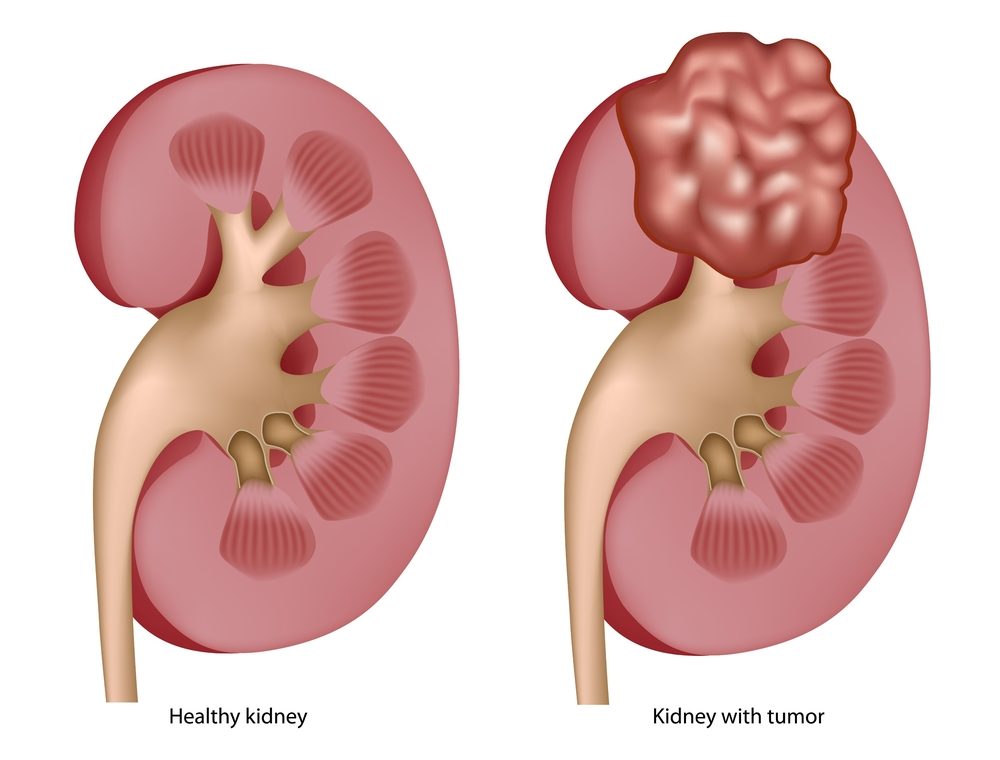
Kidney cancer occurs when abnormal cells in the kidneys start to grow uncontrollably, forming a tumor. There are several types of kidney cancer, with renal cell carcinoma being the most common. It primarily affects adults and is more prevalent in men than women.
The early stages of kidney cancer often do not exhibit any noticeable symptoms. However, as the disease progresses, certain signs may arise, including:
- Blood in the urine (hematuria)
- Back pain, specifically below the ribs
- Unintentional weight loss
- Fatigue and weakness
- Swelling in the ankles and legs
- Persistent fever
- Loss of appetite
If you experience any of these symptoms, it is crucial to consult a healthcare professional for further evaluation.
While the exact cause of kidney cancer is unknown, certain factors may increase an individual's risk of developing the disease. These include:
- Smoking: Cigarette smoking significantly elevates the risk of kidney cancer.
- Obesity: Being overweight or obese increases the likelihood of developing renal cell carcinoma.
- Hypertension: High blood pressure has been associated with an increased risk of kidney cancer.
- Family History: A family history of kidney cancer or certain hereditary conditions, such as von Hippel-Lindau disease, can predispose individuals to this condition.
To diagnose kidney cancer, healthcare professionals may conduct various tests, including:
- Imaging Tests: Imaging techniques like CT scans, MRIs, and ultrasounds help visualize the kidneys and detect any abnormalities.
- Urine Tests: Analysis of urine samples may reveal the presence of blood or other substances associated with kidney cancer.
FAQ's
Services
- Kidney Stone
- Kidney Transplant Evalution & Surgery
- BHP
- Uro-Oncology
- Kidney Cancer
- Penis Cancer
- Bladder Cancer
- Prostate Cancer
- Testicular Cancer
- Urethral cancer
- Sexual dysfunction & Male infertility
- Erectile dysfunction and Impotence
- Andrology
- Robotic Surgery
- RIRS
- Blood in Urine
- Urinary Tract Infection
- Urinary Incontinence
- Prostate Gland
- Pediatric Urology & Laparoscopy
- Aging Male
- Female Urology
- Penis Enlargement
- Varicocele
- A-V Fistula & Ralated Vascular Access Surgery
